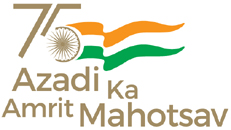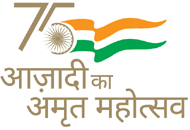Extension reforms
Support to State Extension Programmes for Extension Reforms
Extension Reforms in India were pilot-tested in 28 districts of 7 states during November 1998-April, 2005 under Innovations in Technology Dissemination (ITD) component of the World Bank funded National Agricultural Technology Project (NATP). This successful experiment served as a basis to launch the Scheme of "Support to State Extension Programmes for Extension Reforms" by the Ministry of Agriculture, Govt. of India to revitalize agricultural extension in all the States to make the extension system decentralized and demand-driven. The Scheme focuses on operationalizing agricultural reforms across the country through new institutional arrangements with restructured autonomous bodies at District / Block level, which are flexible, bottom-up, farmer-driven and promote public-private partnership.
The introduction of reforms in 603 districts of the country necessitated orientation and capacity building on preparation and operational aspects. MANAGE is facilitating the implementation of this Scheme in all the selected districts by initiating various capacity building programmes for the officials of agriculture and other line departments, State Agricultural Universities, KVKs and NGOs.
The earlier institutional mechanism for extension under the Scheme was SAMETI at the State level catering to Training and HRD needs of extension functionaries; Agriculture Technology Management Agency (ATMA) at District level for coordination and management of agricultural extension related work in the District; Block Technology Team (BTT) consisting of line department representatives in the Block and Farmers Advisory Committees (FACs) comprising a group of farmers at Block level to advise and provide inputs to the BTT.
The Scheme was subsequently modified and strengthened as indicated here:
-
Provision of specialist and functionary support at different level namely State Coordinator, Faculty and Supporting Staff for SAMETI as State leve, Project Director (PD), Deputy PDs and Supporting Staff at District level and Block Technology Manager (BTM) and Subject Matter Specialists (SMSs) at the Block level;
-
Innovative support through a "Farmer Friend" for every two villages;
-
Revision in ATMA Cafeteria (i.e. list of extension related activities to chose from) to include additional activities and to provide for enhanced unit costs for some of the activities.
-
Farmers Advisory Committees (FACs) at State, District and Block levels to advise and provide inputs to administrative bodies at respective levels;
-
Support to SAMETIs for creating essential infrastructure;
-
Delegation of powers to State level Sanctioning Committee (SLSC) set up under RKVY to approve the State Extension Work Plan (SEWP) prepared under the Scheme.


